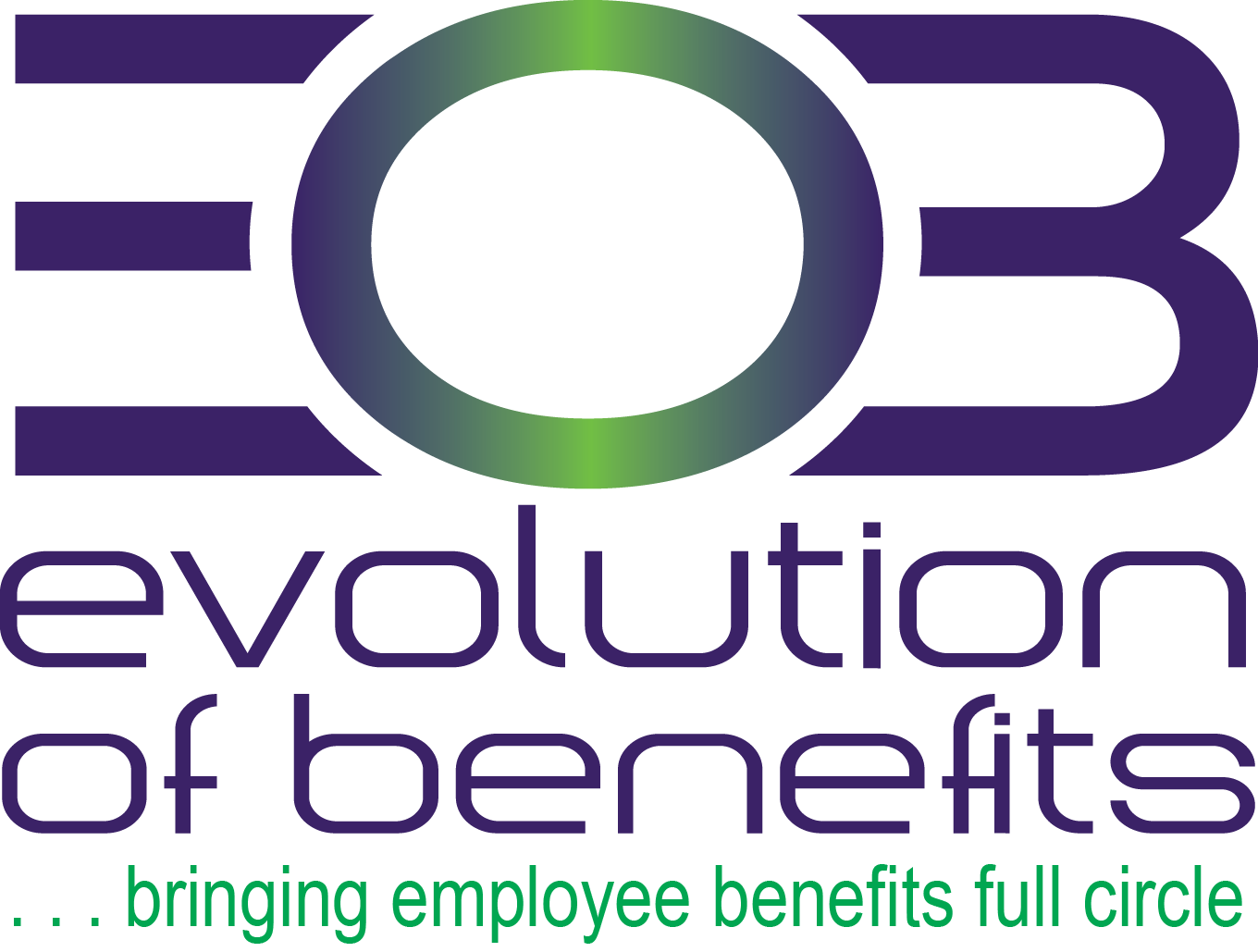OSHA Will Not Amend COVID-19 Healthcare ETS After CDC Reversed Face Mask Guidance

OSHA determined that neither the CDC’s guidance on health care settings nor the underlying science and data on COVID-19 in health care settings has materially changed in a way to necessitate changes in the June 10, 2021 ETS.
For more information:
4 Lessons Learned From Open Enrollment During the Pandemic

The pandemic presented many learning opportunities for organizations as they pivoted and learned how to be resilient during uncertain times. The 2020 open enrollment season was one such opportunity, and many employers rose to the challenge by exploring new ways to engage and educate their employees about their benefits.
With open enrollment approaching and hybrid/remote workplaces still a reality, employers can use last year’s experiences to shape their open enrollment planning and processes. This article discusses key lessons from last year’s open enrollment season that can increase plan participation this fall.
Reach out to Evolution of Benefits for all your employee communication needs, including enrollment guides, video messaging, presentations and more.
Learn more and take action – view the full newsletter below.
Federal Workers and Contractors Must Attest to Vaccination Status

Every federal government employee and on-site contractor is now required to disclose their vaccination status. Federal employees and contractors who cannot attest to being fully vaccinated will be required to wear a mask while at work.
This new requirement applies regardless of whether employees are:
- In a location where COVID-19 cases are not surging (it does not matter where the employee is geographically located);
- Physically distancing from all other employees or visitors;
- Subject to restrictions on official travel; or
- Complying with weekly or twice weekly screening testing requirements.
Learn more:
DOJ and DHHS Issue Guidance on “Long COVID” and Federal Laws – Compliance Bulletin

On July 26, 2021, the U.S. Department of Justice (DOJ) and Department of Health and Human Services (DHHS) issued joint guidance on a medical condition called “long COVID” and how it may be considered a disability under various federal laws that protect individuals against discrimination. These laws include:
• Title II of the Americans with Disabilities Act (ADA), which applies to state and local governments;
• Title III of the ADA, which applies to public accommodations;
• Section 504 of the Rehabilitation Act of 1973 (Section 504), which applies to certain schools and other educational entities; and
• Section 1557 of the Patient Protection and Affordable Care Act (Section 1557), which applies to certain health plans.
Although employment is outside the scope of topics addressed in the new guidance, it includes information that may be relevant to employers. For example, it may help determine whether an individual with long COVID has a disability under Title I of the ADA or Section 501 of the Rehabilitation Act, both of which apply to employers with 15 or more employees. However, employers that wish to learn more about workplace issues relating to COVID-19 should review separate guidance issued by the U.S. Equal Employment Opportunity Commission (EEOC).
Action Steps
All employers should follow the most current guidelines and suggestions for maintaining workplace safety, as issued by the Centers for Disease Control and Prevention (CDC) and any applicable state or local health agencies. Businesses and other entities subject to the laws listed above should also review the guidance issued by the DOJ and DHHS, which is provided in this Compliance Bulletin below.
What Is Long COVID, and What Are its Symptoms?
According to the CDC, people with long COVID have a range of new or ongoing symptoms that can last weeks or months after being infected with the virus that causes COVID-19 and that can worsen with physical or mental activity. Examples of common symptoms of long COVID include:
• Tiredness or fatigue;
• Difficulty thinking or concentrating (sometimes called “brain fog”);
• Shortness of breath or difficulty breathing;
• Headache;
• Dizziness on standing;
• Fast-beating or pounding heart (known as heart palpitations);
• Chest pain;
• Cough;
• Joint or muscle pain;
• Depression or anxiety;
• Fever; and
• Loss of taste or smell.
This list is not exhaustive. Some people also experience damage to multiple organs, including the heart, lungs, kidneys, skin and brain.
Is Long COVID Always a Disability?
What Rights Do People Whose Long COVID Qualifies as a Disability Have Under the ADA, Section 504 and Section 1557?
What Federal Resources Are There For People With Symptoms of Long COVID?
Click here to view and download the latest Compliance Bulletin
HR Brief – August 2021 | Hybrid Work Models, Preventing Turnover Post-pandemic

Considering a Hybrid Work Model
Work flexibility is consistently cited as a post-pandemic trend, and many employers are already introducing hybrid work models in their reopening plans. A hybrid workplace is a flexible model designed to support a workforce of both on-site and remote employees.
A thoughtful hybrid workplace approach combines the best aspects of an organization’s on-site and remote workplaces. To best accommodate a distributed workplace, consider the following tips:
- Set clear expectations for which employees are eligible for hybrid work, and be transparent about any decisions.
- Formalize hybrid work request processes.
- Plan meetings that best accommodate all employees.
- Consider how project management and communication channels can foster company-wide collaboration.
Preventing Turnover Post-pandemic
Turnover is a common occurrence throughout any given year. However, during the COVID-19 pandemic, turnover rates fell dramatically. Now, a significant number of employees are unwilling to return to the status quo that was established pre-pandemic. That’s a major reason why experts predict a “turnover tsunami” coming in the latter half of 2021.
What Employees Want Post-pandemic
Generally, workplace survey data from the past year illuminates some commonalities between worker desires across industries. The following are some of the most coveted changes workers are looking for post-pandemic:
- Flexible work options
- Protection from burnout
- Competitive compensation
- Considerations for Employers
To stay ahead of these trends, employers will need to look inward toward their unique employee populations and determine what’s important to them. This inquiry may include surveying employees to learn about what they are looking for. To help meet the demands of a workforce, employers can consider implementing changes, such as:
- Providing remote or hybrid working arrangements
- Providing flexible scheduling options
- Adopting or expanding employee assistance programs to help with mental health and burnout
- Increasing compensation or bonuses
- Having managers meet more frequently with employees to discuss challenges and concerns openly
August’s Live Well Work Well Newsletter – Summer Travel Safety Tips; The Long-term Effects of COVID-19; What’s Better—Caffeine or Sleep?

View and download the latest Live Well, Work Well newsletter
If you’re trading your staycation for a getaway, here are some tips to keep you as safe as possible this summer:
- Get vaccinated. The Centers for Disease Control and Prevention (CDC) recommends delaying travel until you are able to get fully vaccinated.
- Stay domestic. Although Europe continues to open up to fully vaccinated U.S. travelers, the global travel situation is in flux. Some countries are closing their borders again or enforcing strict curfews and mandates.
- Take a road trip. Traveling by car is still safer than flying as it involves less exposure to people.
- Explore the outdoors. Outdoor activities are generally safer. Get outdoorsy or visit small towns to distance yourself from others easily.
- Check travel restrictions. Be flexible and continue checking state and local policies for where you are, along your route and where you are going.
- Keep up with COVID-19 safety precautions. Pack extra masks and hand sanitizer for any outing. Regardless of your vaccination status, you should still wear a mask, avoid crowds and wash your hands frequently when traveling.
If you’re not traveling this summer, use your vacation time to reconnect with friends and family who you’ve missed.

What’s Better—Caffeine or Sleep?
A new study in the Journal of Experimental Psychology tested how caffeine and sleep can impact your day and overall effectiveness at completing tasks. Experts revealed that caffeine can help you stay awake if you’re sleep-deprived, but it likely won’t improve your performance on tasks.
Caffeine can help you get through the midday slump, but it isn’t a substitute for a good night’s sleep. Sleeping is needed to help repair body tissue and cleanse the brain of plaque buildup. Adequate sleep is especially important for people in high-functioning work environments who work long hours, such as medical professionals and truck drivers. Also, not only is coffee a poor substitute for sleep, but overconsumption of caffeine—more than 400 mg daily—can also disrupt sleep.
Updated CDC Guidelines

CDC Updates Guidance, Says Fully Vaccinated Individuals Should Wear Masks in Some Indoor Settings
The Centers for Disease Control and Prevention (CDC) recently announced updates to its mask guidelines as an emerging variant of COVID-19 known as Delta spreads across the country.
The CDC’s updated guidance now recommends that fully vaccinated individuals wear masks in public indoor settings when in areas with high or substantial transmission of COVID-19. Over 60% of U.S. counties have high or substantial transmission of COVID-19, according to CDC data. The guidelines also recommend masks be worn by all individuals in K-12 schools regardless of vaccination status.
In addition, the CDC encourages community leaders to promote vaccination and mask-wearing as preventive measures against COVID-19.
The CDC has expressed that COVID-19 vaccines are effective at protecting against the Delta variant, and they have been found to reduce the likelihood of severe illness, hospitalization and death.
Next Steps
This guidance from the CDC is not legally binding. As such, it is up to states and local officials to establish their own mask rules.
Employers should continue to monitor updates from local and state health officials. In addition, employers may need to update their own policies to comply with new guidelines.
We will keep you updated on noteworthy developments.
For more information:
July HR Brief: Employee COVID-19 Vaccine Cards; Attracting Top Remote Talent

Supporting Employees With Vaccine Cards
Employers can consider proactive steps to help ensure employees aren’t left without copies of their vaccine cards. These steps include encouraging employees to keep their cards in a safe place and to take a photo of their card, and providing employees with protective sleeves for their card. Click the link below for the full article.
Attracting Top Remote Talent
Remote work is quickly becoming a desirable benefit in today’s labor market as many employees desire flexible work options. As more organizations embrace long-term remote or hybrid workplace models, employers will continue to compete for their industry’s top candidates. Click the link below for the full article.
EEOC Updates Guidance on COVID-19, Vaccines and the ADA

ADA Rules Still Apply but Do Not Prevent Safety Measures
Employers must follow ADA rules while observing emergency guidelines issued by federal, state and local health authorities during the pandemic
Click here to view and download the latest HR Compliance Bulletin and learn the details
EEOC Issues New FAQs on COVID-19 Vaccine Programs & Incentives – HR Compliance Bulletin

The EEOC’s new FAQs clarify, among other things, that employers may:
- Require employees who will be physically entering the workplace to be vaccinated, as long as certain requirements are met;
- Offer to provide vaccinations to employees on a voluntary basis;
- Offer incentives for employees to receive COVID-19 vaccinations, as long as the incentives are not coercive;
- Offer to provide vaccinations to employees’ family members on a voluntary basis (but may not require or provide incentives for family members’ vaccinations).
Mandatory Vaccines and Reasonable Accommodations
Employers with mandatory vaccination programs must provide reasonable accommodations for individuals who refuse the vaccine due to disability, pregnancy or religion.
Click here to view and download the latest HR Compliance Bulletin




















